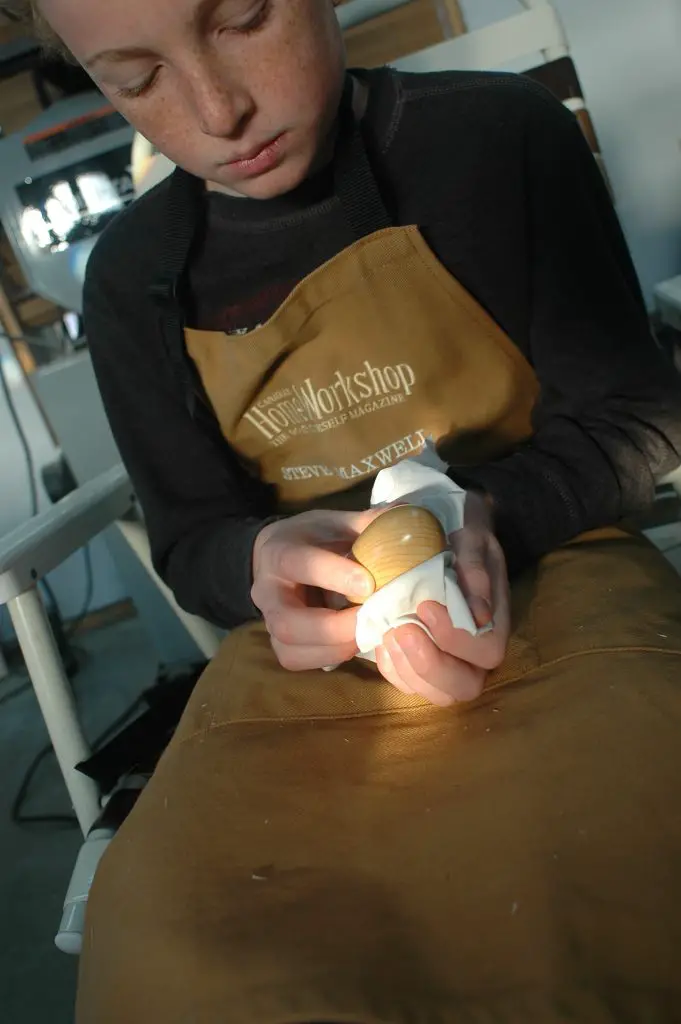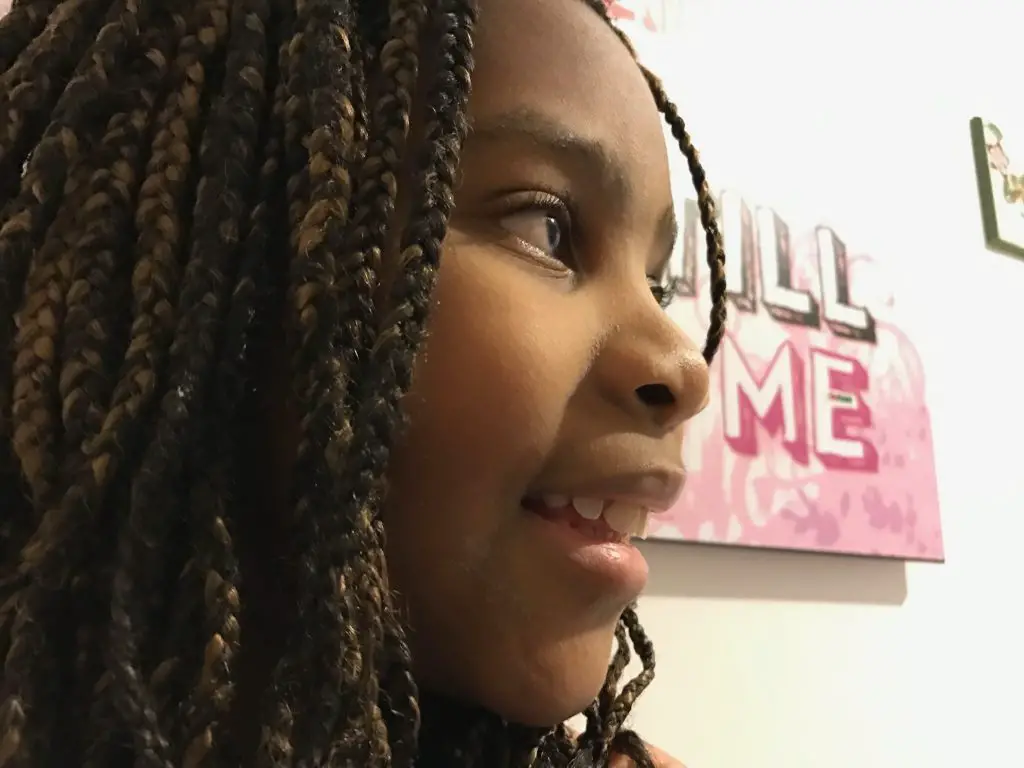Home schooling is increasing in popularity across North America and other places, and not just because of COVID. Over the years we’ve done some home schooling here at the end of Bailey Line Road, and this article is to explain something to you that I wished someone had explained to me much earlier on.
It was 1995 when it came time for our oldest child, Robert, to go to school for the first time, and at the time I really wanted to teach him at home. There he is below, in the middle years of his elementary school career.

My thinking was simple: Both my wife, Mary, and I are home all day every day, and working together I was sure we could teach Robert in ways that the school system couldn’t match. Trouble was, Mary didn’t feel up to the job of home schooling and I didn’t think I could fit the job of a home schooling dad into my full-time work day. So Robert ended up going to public school for his whole career, and so did his younger sister, Katherine. That’s her below on the swimming raft on the lake near our place.

As the years have gone by, it’s plain to see a steady decline in the level of morality and behavior in the classroom. Every long-term teacher I speak with tells me the same thing: many kids today are nothing like the kids they taught 20 years ago. Many are coming to the classroom for the first time not knowing manners, not having respect for authority, and, in most cases, hopelessly addicted to their phones as they sneak peaks at the screen during the work day in their desks. But despite my growing concerns as a dad, I couldn’t figure out how to fit home schooling into my work day, at least not the way I envisioned home schooling at the time. If only I knew then what I know now.
Quite by accident one day I realized something. So many home schoolers manage their day the same way professional teachers do in public schools, just on a smaller scale. That’s what I was envisioning for myself, too. The parent acts as the teacher, spoon feeding the children information, leading them through the learning process hand-in-hand. My problem was that I didn’t have time to spoon feed and I’d never seen any alternative. Then it hit me: In a world where information is anything but scarce, is spoon feeding information really the ideal way for a child to learn? Perhaps one of the best “lessons” I could give my kids was the experience of how they could teach themselves.

I decided to put this idea into practice in 2009, when my son Joseph was going into grade 7, and my son Jacob was heading into grade 5. That’s Joe below above polishing a wooden egg he carved in our shop. Jake is above that with a Monarch butterfly he hatched from an egg. Neither boys liked the idea of home schooling when I suggested it, but I explained that we’d try it for two years and see what happened. My plan was simple and it worked beautifully.

I set out daily academic expectations for Joe and Jake, gave them the resources they needed to learn what they needed to learn on their own, then I’d monitor the results. I would do no teaching unless absolutely necessary, passing the responsibility for learning on to them. My job was to tell the boys what they needed to learn, then make sure they learned it without spoon feeding them. As it turned out, my role as a home schooling dad took me no more than one hour a day, but the academic results we achieved were even better than I’d hoped for.
The first thing I noticed about Joe and Jake when they started home schooling was that neither could write properly. They were both at the top of their school classes in all subjects, yet neither of them knew how to use capitals, commas, periods and paragraphs. Each of their “sentences” had at least two spelling errors. Hand writing was almost illegible all the time. Math was weak, too. Neither boy knew their multiplication tables by heart (a milestone that everyone in my school had mastered by the end of grade 3), and neither understood how to self-manage their time at all. In short, these top-of-the-class boys were academically incompetent in the fundamentals and unable to guide themselves.
One of the home schooling approaches I put into practice back then had to do with time and productivity. I didn’t care how fast or slow the boys worked, as long as they got their day’s work done before sun down. At first, if the boys wasted time (and they sure did), it might take them from 8am to 6pm to finish their day’s work. But once they realized that working efficiently got them out of the office and down to the lake fishing for the afternoon, they could be done their day’s work by 11am. It’s amazing what happens when a child feels the rewards of being productive. It took more than 6 months of home schooling for this self-motivated direction to kick in.
By the end of our two years of home schooling, both Joe and Jake could write better than most adults I know, they could teach themselves just about anything, and they were covering chemistry and history and geography at a high school level. Joseph (22 years old in 2020) went on to teach himself all through high school at home (not a single bit of help from me nor a teacher) and he earned an SAT score high enough to win an academic scholarship as a foreign student at the University of Tennessee. Joseph also used his free afternoons to teach himself shot put and discus throwing on some concrete pads we poured together in our pasture. He went on to set Canadian records in both these events and is poised to go to the Olympics the next time they happen.
Jacob (20 years old in 2020) is on his way to becoming a veterinarian and pulling off the 90% marks necessary at university. He opted to go to high school so he could spend time with friends but when he runs into problems, he knows how to solve them without help. He can also change the brakes on the car he drives, he cooks well, he can do laundry and he’s holding down a part-time job as a veterinarian’s assistant at a large horse racing track.
None of this is to brag, and please don’t think that my kids are natural geniuses. They’re not particularly gifted academically, they’ve just been presented with different expectations and opportunities than most. I firmly believe many, many young people could achieve similar results if they were presented with expectations for learning and ways of learning that are different than what’s common today. Will home schooling work for every family? No, it won’t. But I’m sure most young people would develop far more fully if they were taught to teach themselves as well as taught specific subjects while focussing on the basics.
These days I recently lost our last home schooler, Ellie (12 years old in 2020). She has a very different personality than the boys and we put in four years of home schooling together. Ellie’s singing skills have blossomed during that time (I think you’ll be impressed by her YouTube channel singing so check it out), but she was missing kids her age. I offered her the chance to go back to school this past September, and she’s there now. If nothing else, this transition has reinforced my appreciation of the value of home schooling. Ellie’s singing progress has slowed down, she’s much more tired, jaded and unhappy than she was when we home schooled, and she wakes up every morning begging to stay home. “You can stay home any time you want”, I tell her, but the lure of socializing is too strong, at least for now. She’s also not really learning much since she gets near-perfect marks every time because she’s mastered all the grade 7 skills a year or two ago. You can see Ellie below from a few years ago.
